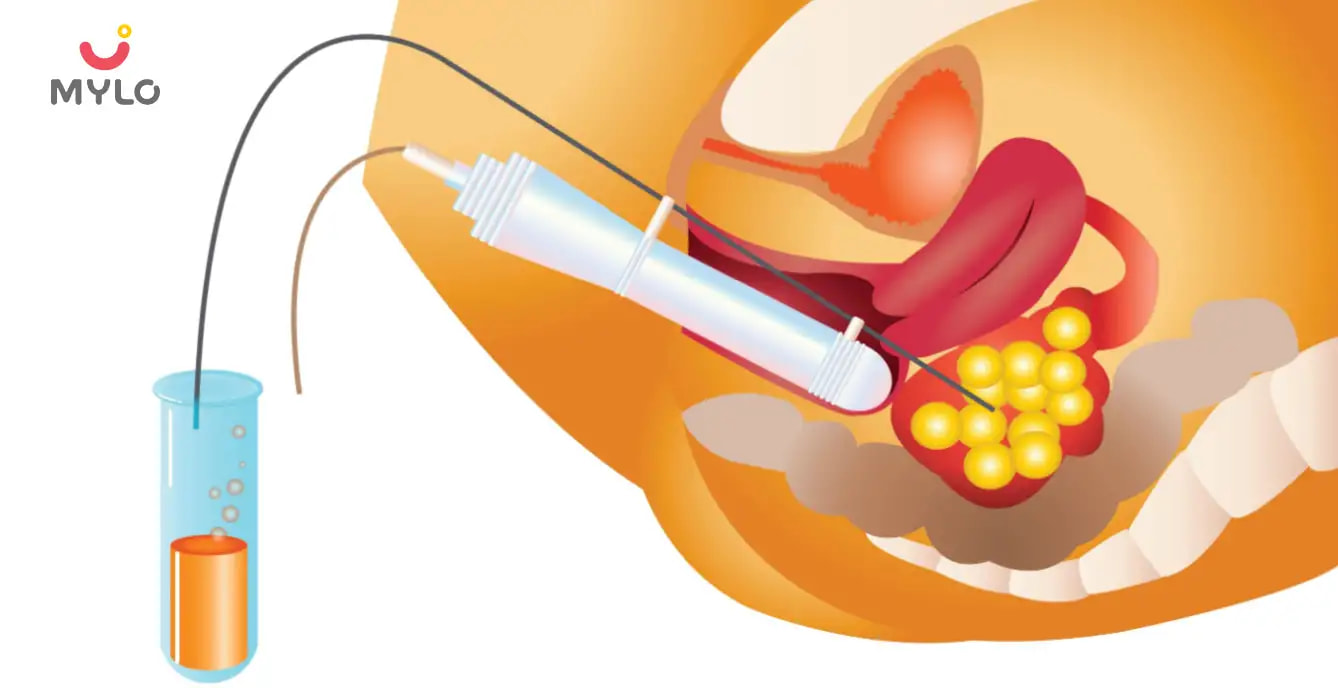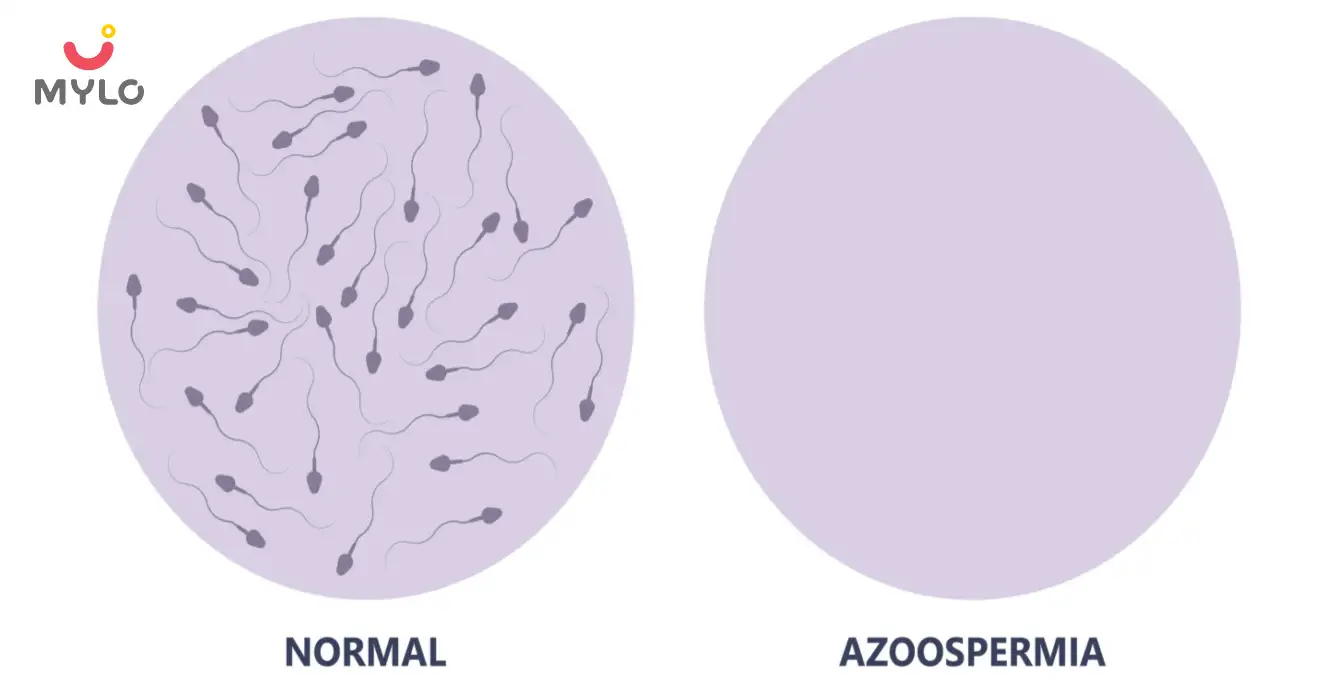Home

In Vitro Fertilization (IVF)

The Ultimate Guide to Egg Retrieval: Everything You Need to Know
In this Article

In Vitro Fertilization (IVF)
The Ultimate Guide to Egg Retrieval: Everything You Need to Know
Updated on 20 June 2023
Are you considering egg retrieval as part of your fertility journey? Whether you're exploring fertility preservation or undergoing in vitro fertilization (IVF), understanding the process of egg retrieval is essential.
This comprehensive guide will take you through every step, from the egg retrieval process, what to avoid after egg retrieval to recovery after egg retrieval, providing you with the knowledge and confidence to navigate this crucial procedure.
What is Egg Retrieval?
Egg retrieval is vital in assisted reproductive technology, specifically in vitro fertilization (IVF).
It involves the surgical extraction of mature eggs from a woman's ovaries to be fertilized in a laboratory setting. This intricate process is pivotal in helping individuals, and couples overcome infertility challenges.
How to Prepare for the Egg Retrieval Process?
Preparing for egg retrieval is essential in the in vitro fertilization (IVF) journey. Here are some general guidelines:
1. Understand the procedure
Familiarize yourself with the details of the egg retrieval process. Discuss any concerns or questions you may have with your doctor beforehand.
2. Medication protocol
Your doctor will likely prescribe medications to stimulate your ovaries and promote the development of multiple mature eggs. Follow the medication protocol precisely as instructed.
3. Stay hydrated
Drink plenty of water to stay well-hydrated before and after the procedure. This can help optimize egg quality and make retrieval more manageable.
4. Adjust your activities
Your doctor may advise you to avoid vigorous exercise, heavy lifting, and sexual intercourse in the days leading up to the procedure.
5. Arrange time off work
Plan for some time off work or other commitments to rest and recover after the egg retrieval process. The recovery duration varies for each individual, but most people return to their usual routine within a couple of days.
6. Comfortable clothing
Wear loose, comfortable clothing on the day of the procedure. Consider bringing a pair of warm socks, as the procedure room can be cool.
7. Support system
Having a support system in place can be beneficial during this time. Lean on your partner, family, or friends for emotional support and assistance with day-to-day tasks.
Remember, every individual's journey through IVF and egg retrieval is unique, and it's essential to consult with your fertility specialist for personalized advice and guidance throughout the egg retrieval process.
What to Expect During the Egg Retrieval Procedure?
During the egg retrieval, you can expect the following:
1. Anesthesia or sedation
The egg retrieval procedure is typically performed under anesthesia or sedation to ensure your comfort. You will be asleep or in a relaxed state during the process.
2. Monitoring
Your vital signs, such as heart rate and blood pressure, will be monitored throughout the procedure. An IV line may be inserted to administer fluids and medications.
3. Transvaginal ultrasound guidance
The egg retrieval is performed using transvaginal ultrasound guidance. A thin, hollow needle is inserted through the vaginal wall and guided by ultrasound to reach the ovaries.
4. Aspiration of follicles
The needle is used to aspirate the fluid and eggs from the ovarian follicles. The fluid is collected in test tubes and handed over to the embryology laboratory to evaluate and retrieve the eggs.
5. Duration
The procedure typically takes around 20-30 minutes, although it can vary depending on the number of follicles and eggs retrieved.
6. Post-procedure
After the procedure, you will be taken to a recovery area to rest and recover from the anesthesia. You may experience some cramping, bloating, or discomfort, which is normal.
Recovery After Egg Retrieval
Recovery after an egg retrieval procedure can vary from person to person, but here are some general guidelines:
1. Rest
It's recommended to take it easy and rest for the remainder of the day after the procedure. Some women may take a day or two off from work to allow their bodies to recover.
2. Discomfort
It's common to experience some egg retrieval pain or mild cramping in the pelvic area following the procedure. Over-the-counter pain relievers, such as acetaminophen, can help alleviate the discomfort.
3. Bleeding
Some spotting or light vaginal bleeding is expected after the procedure. However, if the bleeding is heavy or persists for more than a few days, contact your fertility clinic.
4. Avoid strenuous activities
It's generally recommended to avoid strenuous activities, heavy lifting, and vigorous exercise for a few days after the procedure.
5. Emotional support
Going through fertility treatments can be emotionally challenging. Reach out to your partner, family, or support groups for emotional support during recovery.
If you experience severe pain, heavy bleeding, fever, or any other concerning symptoms, contact your fertility clinic immediately, as these could be signs of complications and require medical attention.
How to Manage Egg Retrieval Pain?
To manage egg retrieval pain, you can follow these steps:
1. Pain relief medicines
As your doctor directs, take over-the-counter pain relievers, such as ibuprofen or acetaminophen, to eliminate egg retrieval pain.
2. Heating pad
Apply a heating pad or warm compress to the lower abdomen to help ease discomfort.
3. Follow instructions
Follow your doctor's instructions for resting, avoiding strenuous activities, and staying hydrated to support your recovery.
How Many Days After Egg Retrieval Is Embryo Transfer?
In most IVF cycles, embryo transfer is performed 3 to 5 days after egg retrieval. The exact timing depends on various factors, including the quality and development of the embryos and the specific protocol recommended by your fertility specialist.
The embryos are cultured in the laboratory during this time to allow them to develop and reach a suitable stage for transfer. Your doctor will determine the most appropriate timing for the embryo transfer based on individual circumstances.
What to Avoid After Egg Retrieval?
After egg retrieval, taking certain precautions and avoiding certain activities to support the healing process and optimize your chances of success is essential. Here are some things to avoid after egg retrieval:
1. Strenuous activities
Avoid heavy lifting, intense exercise, or any strenuous physical activities for a few days following the procedure.
2. Sexual intercourse
It is generally recommended to abstain from sexual intercourse for a specified period after egg retrieval.
3. Hot tubs and saunas
Stay away from hot tubs, saunas, and excessively hot baths, as the increased body temperature can potentially affect embryo implantation.
4. Alcohol, smoking, and illicit drugs
It is strongly advised to avoid alcohol, smoking, and any illegal drugs during the entire IVF process, including after egg retrieval.
5. Stress and emotional strain
While it's not possible to eliminate stress from your life, try to minimize excessive stress and emotional anxiety.
It's crucial to follow the specific guidelines provided by your fertility specialist since individual circumstances and protocols may vary.
Tips for a Successful Egg Retrieval Experience
To have a successful egg retrieval experience during IVF, it is best advised to follow what to avoid after egg retrieval. Here are some tips:
- Follow your doctor's instructions
- Stay well-hydrated
- Get enough rest
- Communicate openly
- Dress comfortably
- Relaxation techniques
- Post-retrieval care
Final Thoughts
In conclusion, a successful egg retrieval experience during IVF requires careful preparation, adherence to medical instructions, and self-care. You can optimize your chances of successful egg retrieval by following the tips mentioned above, and also learned about different aspects like how many days after egg retrieval is embryo transfer. Remember, each person's journey is unique, so it's essential to consult with your doctor for personalized guidance and support throughout the process.
References
1. Choe, J., & Shanks, A. L. (2023). In Vitro Fertilization. PubMed; StatPearls Publishing.
2. Wang, Y., Zhang, M., Shi, H., Yi, S., Li, Q., Su, Y., Guo, Y., Hu, L., Sun, J., & Sun, Y. (2022). Causes and Effects of Oocyte Retrieval Difficulties: A Retrospective Study of 10,624 Cycles. Frontiers in Endocrinology, 12.



Written by
Madhavi Gupta
Dr. Madhavi Gupta is an accomplished Ayurvedic doctor specializing in Medical content writing with an experience of over 10 years.
Read MoreGet baby's diet chart, and growth tips

Related Articles
Related Questions
Hello frnds..still no pain...doctor said head fix nhi hua hai..bt vagina me pain hai aur back pain bhi... anyone having same issues??

Kon kon c chije aisi hai jo pregnancy mei gas acidity jalan karti hain... Koi btayega plz bcz mujhe aksar khane ke baad hi samagh aata hai ki is chij se gas acidity jalan ho gyi hai. Please share your knowledge

I am 13 week pregnancy. Anyone having Storione-xt tablet. It better to have morning or night ???

Hlo to be moms....i hv a query...in my 9.5 wk i feel body joint pain like in ankle, knee, wrist, shoulder, toes....pain intensity is high...i cnt sleep....what should i do pls help....cn i cosult my doc.

Influenza and boostrix injection kisiko laga hai kya 8 month pregnancy me and q lagta hai ye plz reply me

Related Topics
RECENTLY PUBLISHED ARTICLES
our most recent articles

Sex Life
Loss of Libido: Causes, Symptoms, and Treatment

Leisure
Top 10 Romantic Movies to Watch on Netflix in 2023

Top 10 Romantic Shows to Watch on Netflix in 2023

Leisure
Top 10 Thriller Movies to Watch on Netflix in 2023

Leisure
Top 10 Thriller Shows to Watch on Netflix in 2023

Male Infertility
Azoospermia and Male Fertility: What Every Man Should Know
- Premature Ovarian Failure: How it Affects Female Fertility and What You Can Do About It
- Erectile Dysfunction: What Causes It and How to Treat It
- Positive Signs After Embryo Transfer: What to Look Out For
- Sleeping Position After IVF & Other Precautions That Can Boost Your Chances of Success
- IVF Failure Reasons: Exploring the Challenges Couples Face with Infertility
- Putrajeevak Beej: The Ancient Seed for Modern Health and Fertility
- Shivlingi Beej: The Ultimate Guide to Boosting Your Fertility Naturally
- Milk Thistle in Ayurveda: Unlock The Healing Potential and Health Benefits of This Herb
- Orchidopexy: All You Need to Know About Its Procedure, Risks, and Recovery
- Transvaginal Ultrasound: A Non-Invasive Tool for Early Detection of Reproductive Health Issues
- New Mom Diet Plan – Month 11 Week 42
- Ejaculatory Duct Obstruction: How It Affects Male Fertility and What You Can Do About It
- Testicular Ultrasound: What You Need to Know About the Procedure and Its Benefits
- Symptoms of Low AMH to Watch Out For: A Health Alert for Women Trying to Conceive


AWARDS AND RECOGNITION

Mylo wins Forbes D2C Disruptor award

Mylo wins The Economic Times Promising Brands 2022
AS SEEN IN
















- Mylo Care: Effective and science-backed personal care and wellness solutions for a joyful you.
- Mylo Baby: Science-backed, gentle and effective personal care & hygiene range for your little one.
- Mylo Community: Trusted and empathetic community of 10mn+ parents and experts.
Product Categories
baby carrier | baby soap | baby wipes | stretch marks cream | baby cream | baby shampoo | baby massage oil | baby hair oil | stretch marks oil | baby body wash | baby powder | baby lotion | diaper rash cream | newborn diapers | teether | baby kajal | baby diapers | cloth diapers |




